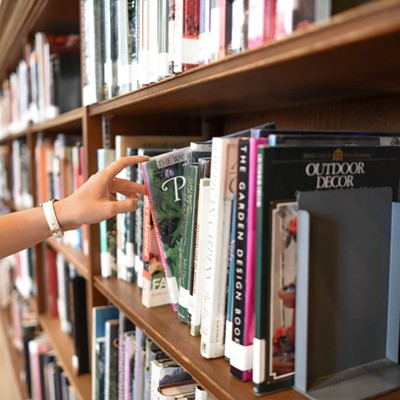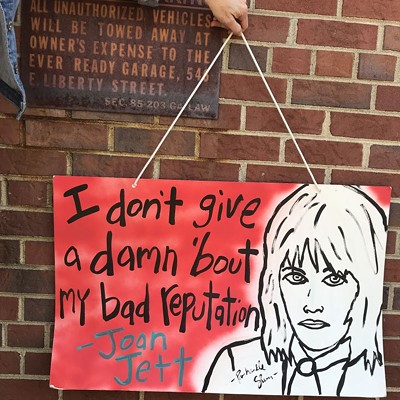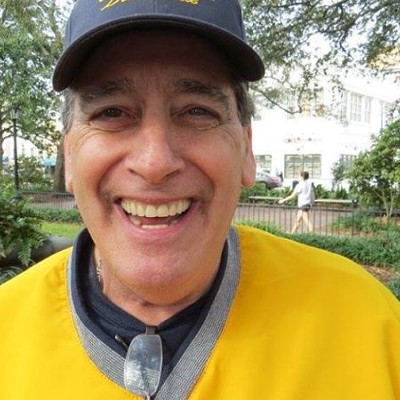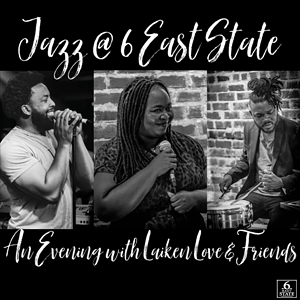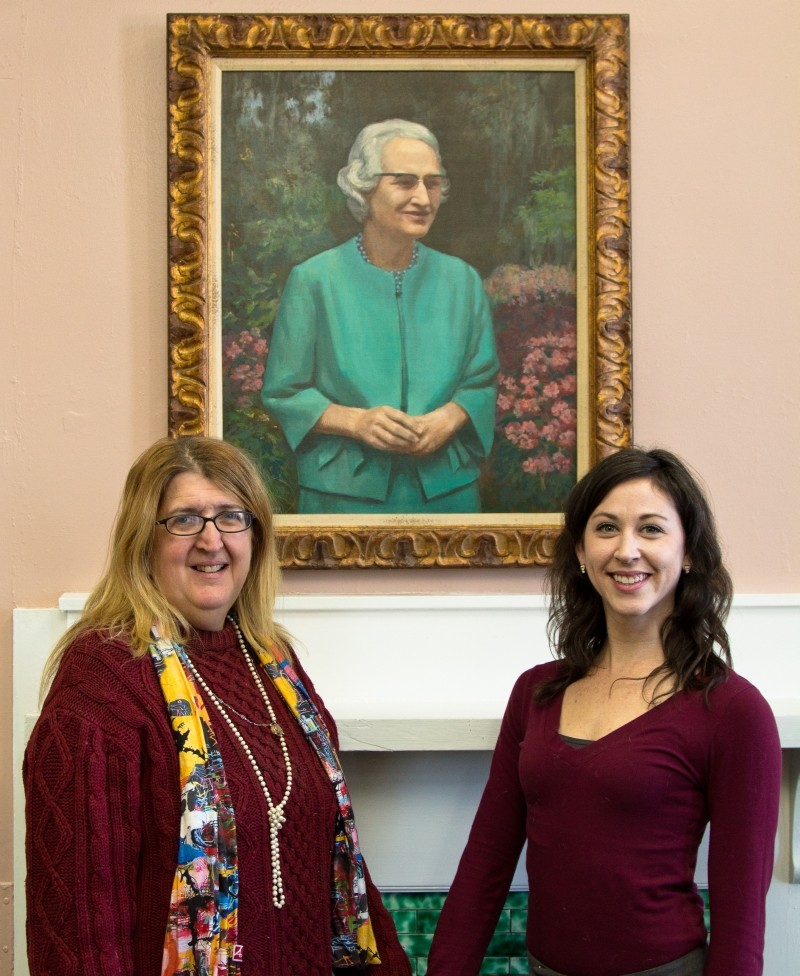
WE ALL know that well-behaved women seldom make history. Which is probably why you don't know a whole lot about Ola Wyeth.
Born in 1882, Miss Ola never did anything so brash as Savannah’s other well-known historic ladies, like leaving her family mansion to an art museum or insisting that girls could learn scouting skills as well as boys.
Instead, this tiny walnut of a woman went about the quiet business of establishing the Live Oak Public Libraries system, all while wearing owlish spectacles and sensible shoes.
Described in her 1971 obituary as “very modest,” Ola Wyeth dedicated her life completely to the lending and tending of books.
During her 27-year LOPL tenure, she tripled the libraries’ circulation and instituted the city’s first bookmobile—making sure it crossed into segregated neighborhoods. Ola may have been polite, but she didn’t let anyone’s ignorant ideas keep her from her mission.
Perhaps you’ve had the pleasure of popping by the branch named after her, a charming book nook tucked away in the Thomas Gamble Building off Bay Street. (Maybe not, since it’s only open weekdays from noon to 3 p.m.)
Other than her name above the door and a single portrait of her surrounded by her beloved azaleas, little exists to remind us of the woman herself. Until now.
“I cried when I read her biography,” relays Grace McWilliams, who works at Ola’s library and recently unearthed the few papers about her at the Kaye Kole Genealogy and Local History Room on the first floor of the Bull Street Branch.
“It had been shut up in a box for all these decades. I couldn’t imagine letting it get away again.”
Grace was astonished to find that the placid Miss Ola traveled to Europe in her 70s, was an active member of the Unitarian church and often quoted the teachings of Confucius. “O. Dub”—as she is affectionately referred to by her library patrons—never married and lived with a pair of spinster sisters in Ardsley Park until she passed away to the Great Library in the Sky at age 88.
(All I can picture is those three ladies sipping tea and reading the hot parts of Lady Chatterly’s Lover out loud. Can you imagine the cackling?)
After discovering Ola’s depth, Grace—along with community action maven Joanne Morton and an intergenerational posse of audacious acolytes—have founded the Women’s History Committee of Savannah to shine a light on “the character, commitment and courage” of our city’s forgotten females.
“Many stories have been shoved to the side because it was not OK for women to advocate for certain things,” says Grace, a preacher’s daughter who originally hails from Albany.
“For Southern women, it’s long been considered a faux pas to be interested in equal rights and justice.”
She and her band of merry miscreants are hosting the very first Women’s History Weekend on March 6-7. The theme, Uncovering the Legacies of Savannah’s Fearless Matriarchs, promises quite a few surprises and plenty of cackling.
If you thought you knew the genteel tales of the Hostess City, you best hike up the hoop skirt and loosen the corset for local historian Louis Clausi’s take on Savannah women. Native researcher and renegade blueblood Hugh Golson also brings his wealth of information to the convivial conclave, joined by Lowcountry genealogist Cynthia Porcher and Rome’s civic powerhouse Nancy Smith.
The weekend focuses on O. Dub and all-but-forgotten Savannah native Ellen Axson Wilson, first wife of President Woodrow Wilson, whose speechwriting skills helped get him elected and whose advocacy for the mentally ill knew no bounds.
Future symposiums will delve into the lives of other radical Savannah women like Mother Mathilda Beasley, who taught slaves to read and became Georgia’s first African American Catholic nun, and journalist Rebecca Stiles Taylor, who reported on civil rights issues from 1937 to 1953 and died before she saw the fruits of her labors ripen to action.
Whether they would have embraced the term or not, the legacies of these Southern women nourished the feminist movement, which, in case you weren’t clear, is based on the outrageous notion that women deserve equal education, pay and representation as well as dominion over our own bodies, voices and wardrobe choices. It’s so simple, yet we’re still fighting for it every day.
Even quiet Miss Ola would have agreed that our right to vote was only won (less than a hundred years ago!) because women marched in the streets to demand it, and that positive change of any kind has only come through shocking acts of insubordination like asking a lot of questions and not accepting the status quo.
Personally, I learned such misbehaviors from my mother. (The shoplifting and cigarettes of my youth, however, are totally my responsibility.)
A lipstick feminist of the ‘70s, my mom schooled me well in the herstories of Susan B. Anthony and Alice Paul. She brought me in my Mary Janes to picket famous equal rights hater Phyllis Schlafly when I was 10. (At 90, Schlafy is still at it, crowing last week that if women don’t want to be raped on campus, they shouldn’t go to college.)
Most importantly, my mama taught me never let an opportunity slip away out of fear.
She demonstrated that lesson like a boss last week when she encountered in an airport the Great Mother of Modern Feminism Herself, Gloria Steinem. My mother saw the 80 year-old icon surrounded by admirers and stepped right up to the Ms. Magazine founder to briskly guide her away from the mob to a quieter part of the terminal, where they had a nice chat.
Instead of bemoaning the slide into slut-shaming and the disturbing embrace of Meghan Trainor’s “All About That Bass” as a feminist anthem, La Steinem mused that she’s never been more optimistic about women changing the world. She cited the mobilization against rape on university campuses (suck it, Phyllis!) and Beyonce’s booty-shaking contributions as evidence of the shoulder-push efforts of our foremothers.
Some of those foremothers’ names we recognize, most we’ll never know, but we owe much respect to history’s fearless women.
And nothing makes me cackle more than the thought of my two favorites, far past their youths, sitting on a vinyl bench in an airport, heads together, plotting the future.




